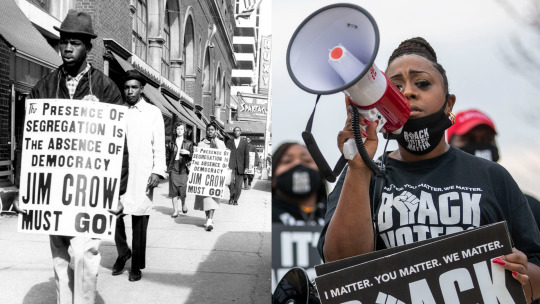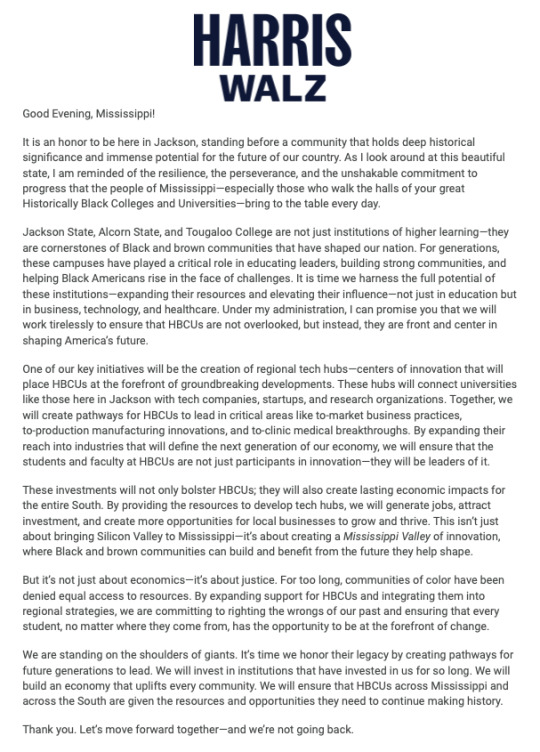#chokwe
Explore tagged Tumblr posts
Text

Chokwe boy, Democratic Republic of the Congo, by African Ceremonies
#chokwe#democratic republic of the congo#africa#central africa#folk clothing#traditional clothing#traditional fashion#cultural clothing
369 notes
·
View notes
Photo

Ceremonial mask representing a male ancestor (Chihongo), Chokwe culture, Angola, late 19th - early 20th century.
© The Yale University Art Gallery
7 notes
·
View notes
Photo









Chokwe Masks throughout history
13 notes
·
View notes
Text
United Nations Day [24 October]


May Peace Prevail on Earth. ~ Masahisa Goi

#United Nations#United Nations Day#Sculpture#O Pensador#Chokwe#Tchokwe#Statue#UN#Peace#Peacekeepers#UNDay#Turtle Bay#United Nations Secretariat Building#United Nations Headquarters#Queensboro Bridge#East River#Men of Peace#Manhattan#New York City#New York
6 notes
·
View notes
Text
Speech Vice President Harris Gave at the Alabama State Capitol!


~BR~
#kamala harris#tim walz#harris walz 2024#campaigning#policy#2024 presidential election#legislation#united states#hq#politics#democracy#Andy Beshear#randall woodfin#stacey abrams#voting rights#civil rights#pay gap#Alabama#harris walz 2024 campaigning#voter suppression#grassroots activism#Montgomery#education#teachers#chokwe antar lumumba#communities of color
3 notes
·
View notes
Photo


REPUBLICANS RESURRECTING JIM CROW IN MISSISSIPPISPECIAL TO THE ...MARCH 03,2023
Earlier this month, white representatives in the Mississippi House approved a bill to create a new district—that includes all of the majority-European neighborhoods in Jackson, a capital city that is 83 percent African. This includes creating a criminal justice system for the district, overseen by an all-European power base.
Under House Bill 1020, the white conservative chief justice of the Mississippi Supreme Court would handpick the new district’s two supervising judges; its prosecutors and public defenders would be chosen by the state’s white Republican attorney general.
The zone would be policed by an expanded Capitol Police force, led by the current European police chief, and supervised by the state’s Europan Public Safety commissioner. Because all the district’s officials would be appointed instead of elected, Jackson’s majority-African citizenry would have no voting rights on the matter—making it Mississippi’s only jurisdiction where, according to the ACLU, “unelected judges and prosecutors have jurisdiction over criminal and civil law matters”—although 12 percent of their sales taxes would be redirected to help pay for it all.
“It’s oppressive because it strips the right of African folks to vote,” Jackson Mayor Chokwe Antar Lumumba said, after the bill cleared the House. “It’s oppressive because it puts a military force over people that has no accountability to them. It’s oppressive because there will be judges who will determine sentences over people’s lives. It’s oppressive because it redirects their tax dollars to something they don’t endorse nor believe in.”
youtube
#kemetic dreams#chokwe natar lumumba#lumumba#african#europeans#jim crow#lawyer#hinds county#mississippi#south#racism
24 notes
·
View notes
Text
The Guardian US: Mississippi Republicans pass bill to create separate, unelected court in majority-Black city
The Republican-dominated Mississippi house of representatives has passed a bill to create a separate, unelected court system in the city of Jackson that would fall outside the purview of the city’s voters, the majority of whom are Black.
The bill, which local leaders have likened to apartheid-era laws and described as unconstitutional, would also expand a separate capitol police force, overseen by state authorities. The force would expand into all of the city’s white-majority neighborhoods, according to Mississippi Today. Jackson’s population is over 80% Black.
Speaking after House Bill 1020 passed on Tuesday evening, Jackson’s mayor, Chokwe Lumumba, branded the proposed law “some of the most oppressive legislation in our city’s history”.
“It’s oppressive because it strips the right of Black folks to vote. It’s oppressive because it puts a military force over people that has no accountability to them. It’s oppressive because there will be judges who will determine sentences over people’s lives. It’s oppressive because it redirects their tax dollars to something they don’t endorse nor believe in,” Lumumba said.
The bill passed largely along party lines in a 76-38 vote and will now travel to the state senate, where Republicans also hold a significant majority. The passage was preceded by an intense, four-hour floor debate in which members of the state’s Black caucus made impassioned pleas to reject the legislation and compared the bill to the state’s Jim Crow-era constitution of 1890.
The legislation was proposed by house Republican Trey Lamar, who is white and represents a district in the state’s north-west, which is majority white.
Lamar, who does not live in Jackson, has cited county court backlogs and crime rates in the city as his motivation for the proposed law. During floor debate, Lamar was asked if any of his constituents had asked for the bill. He replied: “I don’t live in Jackson … but you know what I like to do … I like to come to Jackson because it’s my capital city.”
The bill, which is over 1,000 pages long, would expand Jackson’s existing capitol complex improvement district, which is patrolled by the state’s capitol police and currently covers parts of the city’s downtown that house state government buildings. The district’s expansion would cover areas in the city’s north, which, according to local press, include entertainment and shopping neighborhoods.
The new court district would feature two judges directly appointed by Mississippi’s supreme court chief justice, Michael K Randolph, who is white. There would be two prosecutors, appointed by the state attorney general, Lynn Fitch, a white Republican. And two public defenders appointed by the state defender’s office.
Proposed amendments offered on Tuesday included calls to make the judges residents of the Jackson area and to compel elections for the positions. Both amendments failed.
The proposed bill is the latest in a line of extreme legislation in the state, which last year introduced a sweeping anti-critical race theory law, which met vocal opposition from the state’s Black caucus.
Jackson has also suffered from a series of water outages due to ailing infrastructure, which has been chronically underfunded by the state for years. Black residents in the poorest parts of the city have been disproportionately affected.
In November last year, the city’s water system was taken under federal government oversight after the Environmental Protection Agency found the city in violation of the Safe Drinking Water Act.
#mississippi goddamn#MS#Jackson MS#would also expand a separate capitol police force#according to Mississippi Today. Jackson’s population is over 80% Black.#Jackson’s mayor#Chokwe Lumumba#apartheid system
7 notes
·
View notes
Text
The way george went in to choke karl.....I know he's good at it
3 notes
·
View notes
Text
Mississippi Takes a Step Back
This YouTube clip posted by MSNBC features a report about how white officials in Jackson, Mississippi have approved a bill to set up a separate, white-appointed court system for the people of Jackson, a city that is 80 percent Black:
youtube
2 notes
·
View notes
Text
Federal Corruption Charges Indict Jackson Officials
The mayor of Jackson, Mississippi, along with a City Council member and the local district attorney, have been indicted on serious federal corruption charges. Court documents unsealed on Thursday revealed a scheme in which F.B.I. agents, posing as real estate developers, funneled tens of thousands of dollars in bribes to city officials. Mayor Chokwe Antar Lumumba, a Democrat who first took office…
#Angelique Lee#bribery#campaign contributions#City Council member Aaron Banks#city services#District Attorney Jody Owens#FBI investigation#federal corruption charges#Jackson#Mayor Chokwe Antar Lumumba#Mississippi#water system collapse
0 notes
Text
A Ceremonial Axe, Made By The Chokwe or Lunda People Of Today’s Democratic Republic of the Congo. Early 1900s
In this single work, the artist employed chiseling, punching, inlaying, chasing, engraving, scoring, raising, wrapping, stamping and embossing, among other techniques. Such a blade added to a blacksmith’s honor and influence in the community, with both owner and artist distinguished every time it was displayed in public. Ceremonial axe by Chokwe or Lunda artist, Democratic Republic of the Congo,…

View On WordPress
#A Ceremonial Axe#African Axe#African History#central africa history#Central African weapon#Chokwe people#Democratic Republic of the Congo#Lunda People
0 notes
Text
(cross posting from my main because uh. not everyone needs to know my main)
possible tw for fake blood (drawn) and slight glitchyness(?)






fourth slide is mason yes.
i uh. actually dont know if im properly done but. its not like i show my like. um
proper?????? art on this acc anyways.
uh, feel free to not believe the whole lopt killing mason thing.
i dont really know why i made it in the first place lmao
(i absolutely do. i was being edgy and went “hey! i can traumatize charaters!” and did. for better or worse idk 🤷)
uh. sorry for rambling on smth that isnt main.
this feels kinda awkward and idk why
#probably because i usually write shorter desc or whatever its called#idk anymore tbh#j’s misc shit#as im writing this unironically im listening to conspiracy theory#masons dumb ass hair took the longest and i wish i was kidding.#i also spent toooo long making the ring pictured line up.#(it was 4 mins but still. it was PAINFUL)#i actually considered darkening lopts eyes bc yk. canon. but then i remember in canon they uh#arent married. nor killed each other. nor went on a trip where lopt killed him. nor-#my point is that no shit its not gonna be canon.#may or may not write smth for this. i dunno#OHHHH SO THIS IS WHY IVE BEEN SO OBSESSED WITH MIRACLE MUSICAL?????#ohhh ohhh hoo boy its all coming toghther.#sometimes i love being a creator(?). i can inflict SOOOO much pain onto these two#and also make them fuc-#(kidding. ish. i uh. wrote smut like twice and i dont have much of an intrest in Ever doing it again)#(<— im activly attempting to draw smut. ish. anatomy :(. look)#(the only reason i wanna draw it is to prove that i can 😭😭 but uh. that isnt really working out for various reasons!)#(omg sho refrence?1??1?1 varible?????/?1?2?1)#(CHOKWS JESUS j shut up)#im gonna shut up before i hit the tag limit LMAO-
1 note
·
View note
Text
instagram
#african/black experience#afrikan#war on afrikans#culture#revolutionary#Chokwe Lumumba#Mississippi#Mayor of Jackson Mississippi#Instagram
1 note
·
View note
Text
Speech Vice President Harris gave at the Mississippi State Capitol!

~BR~
#kamala harris#tim walz#harris walz 2024#campaigning#policy#2024 presidential election#legislation#united states#hq#politics#democracy#Andy Beshear#randall woodfin#stacey abrams#Alabama#harris walz 2024 campaigning#chokwe antar lumumba#new orleans#GOTV#get out the vote#Mississippi#jackson#HBCU funding#education#tech innovation#HBCU
2 notes
·
View notes
Text
The Only State Capital Where You Can’t Drink the Water — Practical Engineering
s a blast of bitter Arctic air poured into North America around Christmas Time in December 2022, weather conditions impacted nearly every aspect of life, from travel to electricity to just trying to get out the front door. But the frigid temperatures kicked one American city while it was already down. For many people, the idea of not being able to drink the water in their own house is unimaginable. But for the residents of Jackson, Mississippi, it was just another day…or twelve. Last August, a flood took out the aging water system, leaving nearly everyone in the City without water for more than a week. Only a few months later, that arctic weather spell broke so many pipes in the city that residents again lost access to water, some for nearly two weeks, continuing one of the worst water crises in American history. It’s a stark reminder of the massive undertaking involved in providing clean water, day after day, to an entire city of people at once and the enormous stakes of getting it wrong. What does it really take to run a public water supply, what happened in Jackson, and what does its future hold? I’m Grady, and this is Practical Engineering. In today’s episodes, we’re talking about the Jackson water crisis.
Jackson is not only the capital of Mississippi but also its largest city. Its water utility has around 70,000 connections to homes and businesses and services about 170,000 people through two surface water treatment plants. The OB Curtis plant is the larger of the two, with a rated capacity of 50 million gallons per day or 190,000 cubic meters per day. An intake structure collects raw water from a nearby reservoir. That’s the term for untreated surface water. From there, two large-diameter pipelines carry the water to the headworks of the plant. At the headworks, pumps send the raw water through various treatment processes to clean it up and, ideally, make it safe for drinking. Closer to downtown, the JH Fewell Plant has a rated capacity of about half the OB Curtis plant. It draws raw water directly from the Pearl River downstream of the reservoir. The City also has a few groundwater wells to supplement the surface water system.
In normal conditions, clean and drinkable water flows from both plants into a network of pipes and elevated tanks that deliver that water to each building in the City of Jackson. This is a public water supply, something that might sound kind of obvious, but that term has a specific meaning. Because not just anyone can hook a bunch of pipes up to customers and sell them water. Water is both an immediate necessity for life on this blue earth and a powerful agent of disease transmission, so we have rules that regulate those who would collect it and deliver it to others. Specifically, we have the Safe Drinking Water Act, and each state also has its own rules that govern contaminants, monitoring, and public notifications. The goal of drinking water regulation is to make sure that no matter where you are in the United States, you can open the tap and use that water to cook, bathe, or drink, and not have to worry about getting sick. This might sound like a relatively ordinary endeavor, but designing, building, operating, and maintaining a public water system - even for a relatively small city like Jackson - is a monumental enterprise that requires a lot of money, a lot of people, a lot of oversight, and a lot of infrastructure.
Unfortunately, Jackson has gone without many of those necessities for decades, creating issues in the City that eventually led the federal government, specifically the Environmental Protection Agency or EPA, to conduct an inspection of the system in 2020. What they saw shocked them. The City’s water system was in such a state of disrepair and mismanagement that the EPA immediately issued an emergency order. Regulation of a public water system usually falls to the state, in this case the Mississippi State Department of Health, but the federal government can step in if there is an imminent and substantial threat to public health, and in this case, the EPA decided there was. The emergency order required the City to create a plan to fix all the broken equipment and bring the system back into working order, but the urgency was too little, and too late. From that time in early 2020 until nearly the present day, Jackson’s water system faced a seemingly unending cascade of challenges bringing to light just how bad things had gotten.
In February of 2021, the same winter storm that nearly took out the Texas power grid, hit the City of Jackson too. The unseasonably cold weather affected water mains below the city streets, causing them to break and leak. So many water mains broke that the pumps at the water treatment plants couldn’t keep up. The result was the pressure in the system dropping, in some places so low that they had no water pressure at all. In other words, they had no water. Like it had done so many times before, the City issued a system-wide boil water notice. You may have heard this term before but not quite understood the implications. Water systems are pressurized well beyond what’s needed to move the water through the pipes. That’s done for a reason. High pressure keeps unwanted contaminants out. If the system loses pressure, pollutants can be drawn into the pipes through cracks, breaks, or joints, contaminating the water inside. So if a main breaks or a pump stops working or a treatment plant has to shut down, the operator sends out a boil water notice to affected customers, letting them know that their water might be contaminated, and that it should be boiled to kill any potential pathogens before using it for drinking or cooking. This notice in February 2021 lasted for an entire month. Imagine not being able to trust the water from your tap for that long. But even though that particular notice was eventually lifted, residents of Jackson have lived under a practically constant recommendation to boil the water that comes out of the tap, and that’s if they even have any water to boil in the first place.
Only a few months later, in April of 2021, an electrical fire in the OB Curtis plant took out all five of the high-service pumps, the ones that deliver fresh water into the distribution system. Again the pipes lost pressure, and again a boil water notice was issued, this one lasting for four days. It would be another year before the electrical panel for the pumps would be replaced, crippling the treatment plant’s ability to pressurize the water system. That November, chemical feed issues forced operators to shut down the OB Curtis plant, once again causing the system pressure to drop. That boil water notice lasted another four days. In April 2022, water hammer broke a pipe in the OB Curtis plant, again requiring a shutdown. In June, filters at the plant failed, requiring yet another shutdown and yet another system-wide boil water notice (this one for two weeks while the City worked to fix the problem).
In July, the EPA issued a report summarizing the litany of problems faced by the Jackson water distribution system, and the list would be impressive if it didn’t represent such an injustice to the people the system is meant to serve. Water mains were constantly breaking. The City had an annual rate of 55 breaks per 100 miles of pipe when the industry benchmark is 15. There was no monitoring of pressure, meaning the City had no way to identify or address problem areas in the system. There was no map of the system pipes or valves, making it difficult or impossible to implement repairs. Water towers weren’t getting enough flow, causing the water inside to stagnate. Monitoring equipment in the treatment plants wasn’t working, and if it was working, it wasn’t calibrated. And if it was calibrated, there wasn’t enough staff to keep an eye on it.
For an extended period, the utility had no manager, and it almost never had enough operators to staff the plants. A treatment plant operator has to be licensed and know a lot about chemistry and hydraulics and the various equipment used to clean water. It’s usually a great career because it doesn’t require a college degree, the work is rewarding, and the hours are consistent, but that wasn’t the case in Jackson. The City couldn’t pay enough to keep the three shifts at each treatment plant staffed 7 days per week, so the operators that were there were working lots of overtime, and occasionally not being paid for it.
Over the course of 4 years, the City had issued over 750 boil water notices because of the numerous losses of pressure. Water meters throughout the City were broken or misconfigured, meaning people weren’t being billed correctly or billed at all. In fact, the City estimated its non-revenue water, that’s the water that isn’t being paid for because of leaks or bad metering, to be 50 percent! Half of all the water treated and delivered into the distribution system was just being lost; it wasn’t generating revenue that could be used to maintain infrastructure and pay the staff. On top of that many of the large institutions that should be the utilities biggest customers, including local schools and hospitals, had opted to drill their own wells rather than rely on the failing city system, cutting off even more revenue. It’s not hard to imagine why the system was having trouble keeping up.
Throughout the entire year after the federal inspection, the City had been in constant negotiations with the state and the EPA trying to plot a path forward to bringing their ailing water system back into compliance. Biweekly meetings that included representatives from nearly every side of the issue were held to keep track of progress, but the progress was slow. In August of 2022, the OB Curtis plant switched the chemicals used for corrosion control, resulting in a boil water notice that lasted nearly a month. As the city worked to get the treatment process under control, the mayor said in a press conference, “Even when we come out of this boil water notice, I want to be clear that we are still in a state of emergency.” Then came the flood.
In late August, a deluge of heavy rainfall swept across Mississippi, dropping enormous volumes of precipitation across the state. The Ross Barnett Reservoir was already full of water, meaning all the inflows had to be released through the spillway. That swelled the Pearl River downstream, flooding streets and homes throughout the city. You might think a flood would be a good thing for a water system; after all, a flood is just a lot of water. But the problem with flooding is sediment. Heavy runoff carries soil, making the water muddy and much more difficult to treat. Several raw water pumps at OB Curtis quickly failed as they tried to deliver the sediment-laden water to the plant. And the fraction of water that did make it all the way to the plant was still a muddy mess. Any operator will tell you that slow changes to treatment processes and chemical feeds are best. When there’s a sudden shift in water quality that requires rapid adjustments to the processes, problems are bound to occur, and they did. Muddy water clogged filters and upset the various other processes to the point where the plant was utterly unable to treat it, resulting in a complete collapse of the system. The downstream surface water treatment plant suffered a similar fate. Nearly everyone in Jackson lost the ability to use water for basic safety and hygiene. Schools, restaurants, and businesses were closed. From washing hands to fighting fires to just having water to drink, the City was incapacitated.
The flooding threw the water crisis into the national spotlight. The Mayor, the governor, and eventually President Biden all issued disaster declarations, freeing up emergency resources. Federal officials and emergency workers flooded into Jackson to deliver bottled water to the residents and help restore the water supply. A team of engineers and drinking water experts worked to tackle miscellaneous projects at both treatment plants and most importantly, staff the facilities. By September 6, water pressure had been restored to customers, and a week later, the boil water notice was lifted. But it wasn’t the end of the emergency. The water system was barely functioning, and the relief team couldn’t stay in Jackson indefinitely. An emergency contract was issued for an outside company to take over operations of the water system for a year, but it was clear to everyone involved that an enormous capital improvement program and a huge influx of cash was the only way Jackson could pull itself out of the crisis. The City continued negotiating with the state, the EPA, and the Department of Justice, and in November of 2022, they appointed a third-party manager to take over control of the water system.
Ted Henifin, a licensed engineer and former public works director from Virginia, had already been involved in the emergency work, and was now tasked with 13 priority projects to bring Jackson’s system back, if not into perfect working order, at least into compliance with the drinking water laws. He was given broad power and freedom from normal contracting rules to hire, purchase, and contract as needed to get the work done, and he said in November that he planned to wrap up his priority projects within a year. And then the cold came.
The Christmas polar vortex event created a repeat of February 2021, cracking water mains with freezing weather, and creating so many leaks that the water treatment plants just couldn’t keep up. Jackson’s reliance on surface water creates a challenge because, unlike groundwater, the surface water supply is affected by ambient temperature. Freezing weather means chilly water in the reservoir, and when you’re sending very cold water through the underground mains, it causes them to shrink, and in some cases, to break. The cold weather also affected the chemistry of the raw water entering the plant, causing issues with the treatment processes and forcing the OB Curtis Plant to shut down. 22 schools had little to no water pressure and had to move to virtual learning as they returned from the winter break. For many, it was the last straw, and at least one restaurant decided to close their doors for good after having no water pressure for more than 40 days over the past two years, and many more days than that under boil water notices. The Christmas outage had customers without water for two weeks in the latest, but probably not the last event in the saga of underinvestment, misfortune, and utter failure to deliver a basic necessity to the residents of Jackson.
I talk about the engineering behind catastrophes like this, but in so many cases, it’s impossible to ignore the larger issues driving the story. Like all infrastructure, fresh water systems require investment. In an ideal world, those resources come from the water rates, the money that people pay for the water they receive, so the system supports itself. But, when those rates aren’t enough, something has to be done quickly and decisively, because chronic underinvestment creates a vicious cycle. The infrastructure fails, the billing system doesn’t work, customers leave, staff positions can’t be filled, and things just spiral downhill. So infrastructure funding is often supplemented by debt, by grants, by state and federal investment programs, all resources that require more than good management; they often require politicians. The people in charge of the water system in Jackson have been trying to sound the alarms for years. The Mayor even said the city was in an emergency the week before a flood hit the City that completely collapsed the water system. But it took that flood to convince politicians to free up resources. It’s also impossible to ignore the history of Jackson as a part of this story, including a legacy of racism that isolated and separated minorities, gutted the community tax base, and ultimately led to the failing infrastructure we see now. If you want to learn more about that history, there are far more qualified voices than mine to tell it, so I’ll leave some links to the best sources I found below.
In January, the mayor of Jackson announced that they had secured $800 million dollars in federal funding to tackle the city’s issues with water and sewer infrastructure. Those funds will take years to allocate and spend, but it’s another step forward for a city whose water system has fallen so far behind. Clean water is a human right, and the fact that the citizens of a major city in the US don’t have access to it is more than a shame. I’m sharing the story because I think it’s important for all of us to see the consequences of mismanagement, disregard, and discrimination and hopefully learn from those mistakes so that we can be better managers, leaders, or just advocates for the infrastructure that we rely on everyday.
#mississippi#Jackson#Chokwe antar lumumba#water inequality#water pollution#systemic racism#white supremacy#The Only State Capital Where You Can’t Drink the Water#clean water#clean water in america#clean water for Black People#EPA
0 notes
Text
inside me lives a beast
and that beast is driven mad by being unable to touch all the pretty jewels that appear on this here mobile phone
0 notes